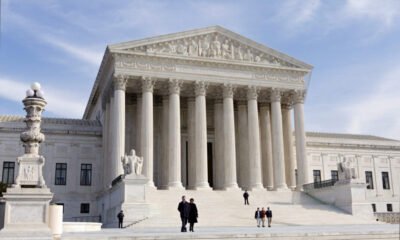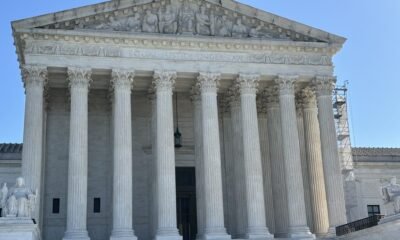2024 election
Progressive Advocates Urge AZ Supreme Court to Halt Lifetime Judge Appointment Ballot Measure

Progress Arizona is appealing to the Arizona Supreme Court in an effort to block a controversial ballot measure that could grant lifetime appointments to state judges. The advocacy organization contests a recent ruling from the Yavapai County trial court, which permitted the proposed constitutional amendment to proceed on the November ballot.
If passed, Proposition 137, officially titled “The Judicial Accountability Act of 2024,” would alter the current system of judicial terms. Instead of regular retention elections decided by voters, judges would serve indefinitely based on “good behavior.” The control over judicial tenure would shift to the Judicial Performance Review Commission, which would gain expanded powers and membership appointed by state lawmakers. This amendment also empowers any legislator to request an investigation into a judge.
Under the proposed measure, judges would only face retention elections in specific circumstances, such as felony convictions or patterns of misconduct identified by the Judicial Performance Review Commission. Progress Arizona asserts that the measure contradicts the Arizona Constitution by failing to present unrelated amendments separately to the electorate.
Last week, Judge John Napper ruled against Progress Arizona, declaring that the measure properly addressed a single subject. He dismissed arguments suggesting that the ballot title was misleading. “They will either reject SCR 1044 or adopt it fully aware of the modification to the right to vote for judges,” Napper stated, emphasizing that the decision is a significant but informed choice for voters.
Progress Arizona’s attorney, Jim Barton, noted that different sections of the ballot measure may appeal to voters in opposing ways, warranting separate consideration. As Barton articulated, the measure simultaneously enhances judicial independence while also increasing legislative oversight, creating a potential conflict for voters. This intricacy raises concerns about the mixing of distinct propositions.
Additionally, Barton pointed out that the single amendment rule differs from the single subject rule laid out for ballot measures. The aim of both rules is to prevent “log-rolling,” where unrelated propositions are bundled together, compelling voters to support issues they may not favor.
Republican lawmakers have defended the ballot initiative, arguing it simplifies the voting process by reducing the number of judges for voters to evaluate. This measure is one of several aimed at circumventing potential vetoes from Democratic Governor Katie Hobbs.
Notably, Justices Clint Bolick and Kathryn King have recused themselves from the appeal due to their own retention elections in November, which could be affected by the outcomes of the proposed amendment.


















